The document discusses F# type providers and their application in dynamic programming, detailing their structure and usage in generating types from schema metadata. It covers the benefits of type providers in providing compile-time type checking and IntelliSense support while interfacing with various data sources like SQL databases and web services. The document also outlines design considerations for implementing type providers and provides a sample for creating a simple type provider.
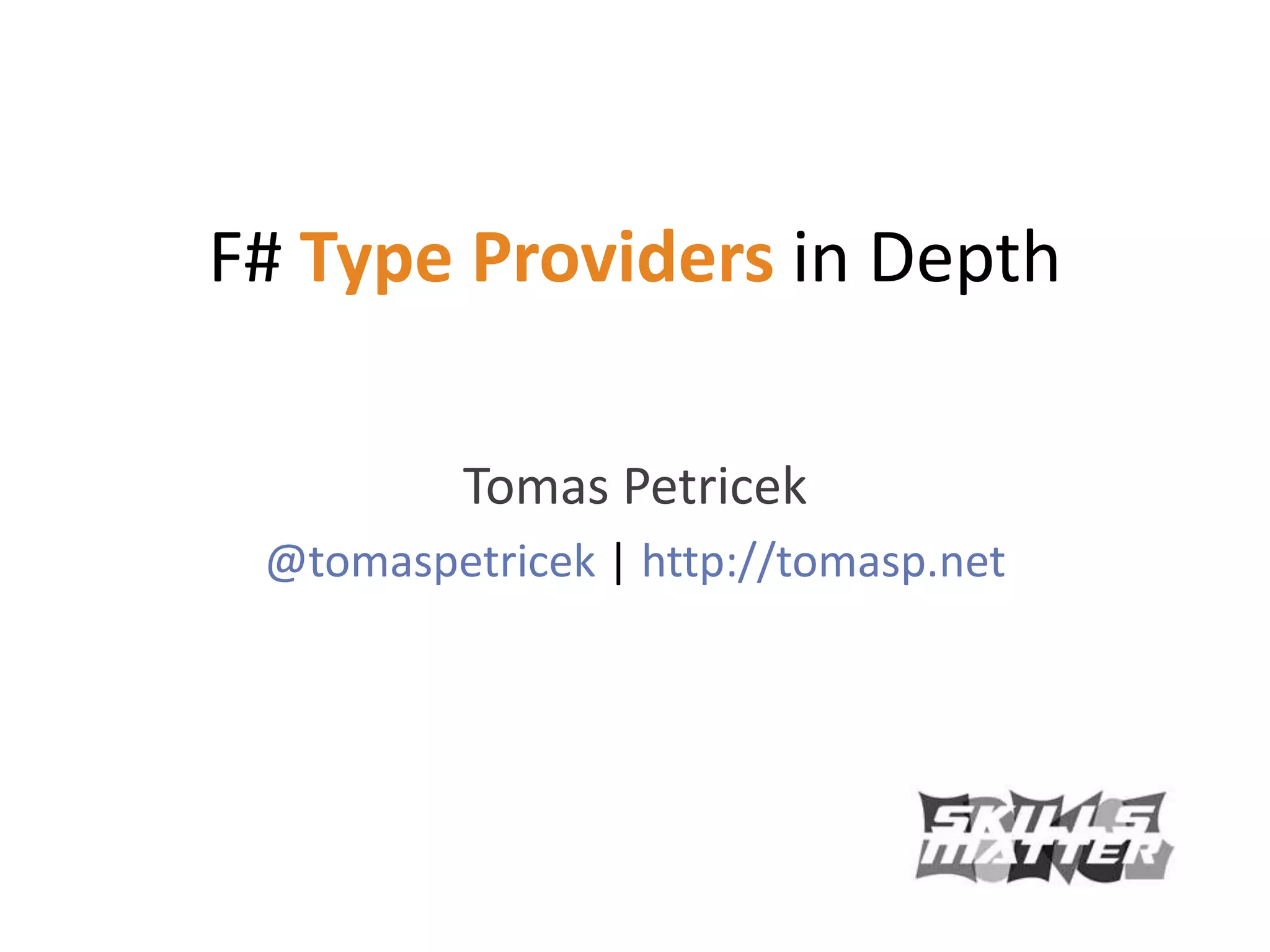

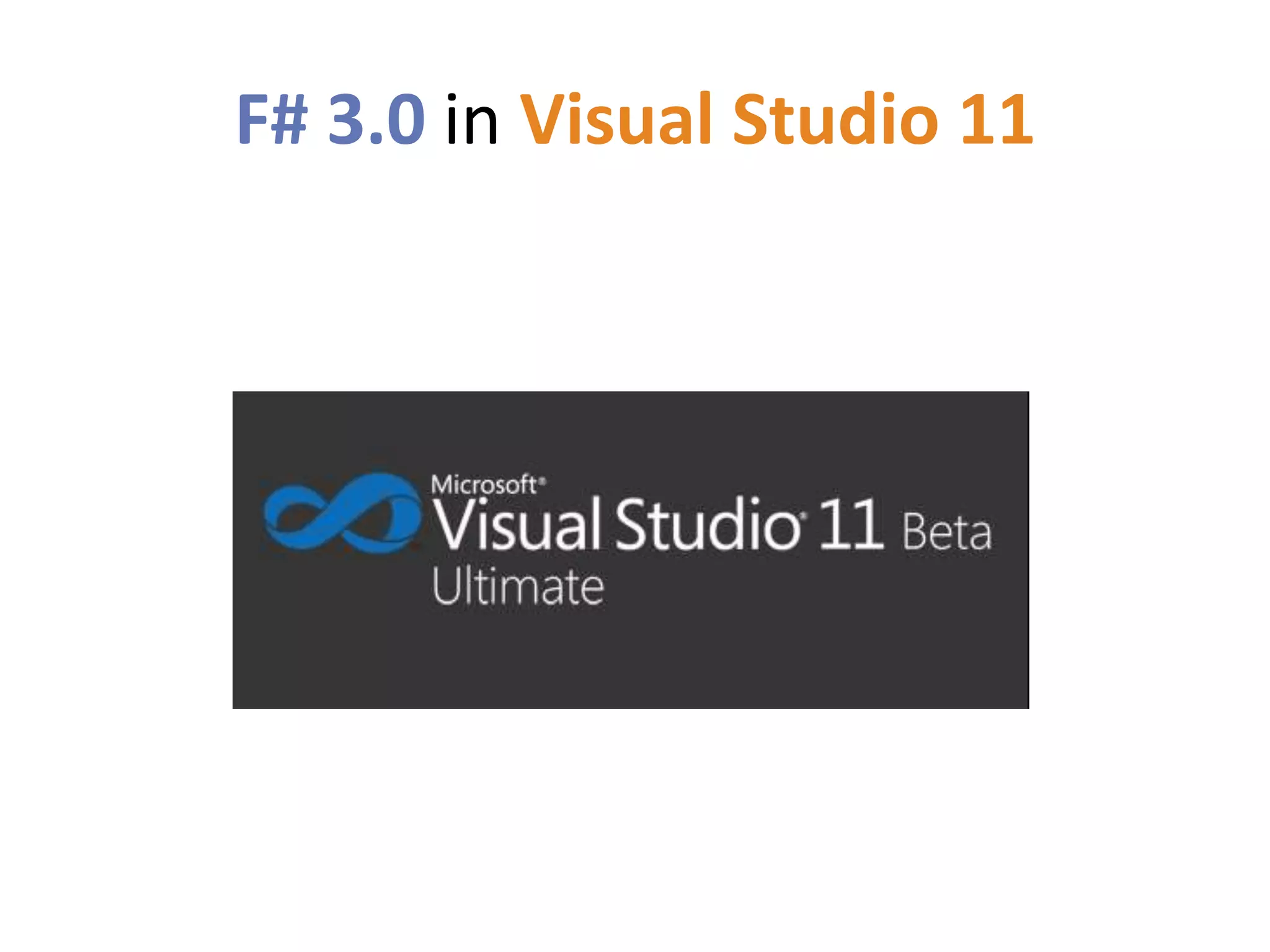
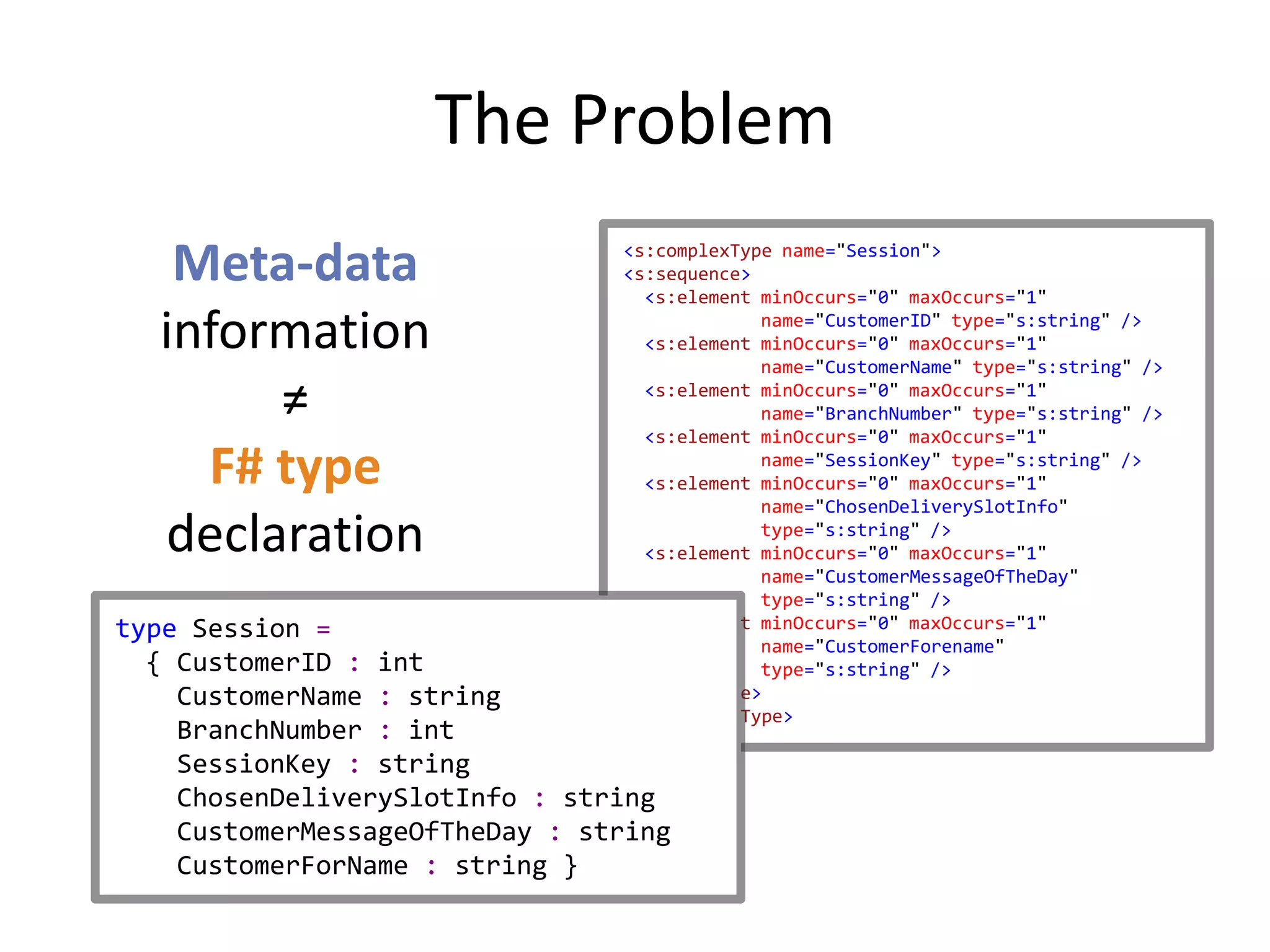

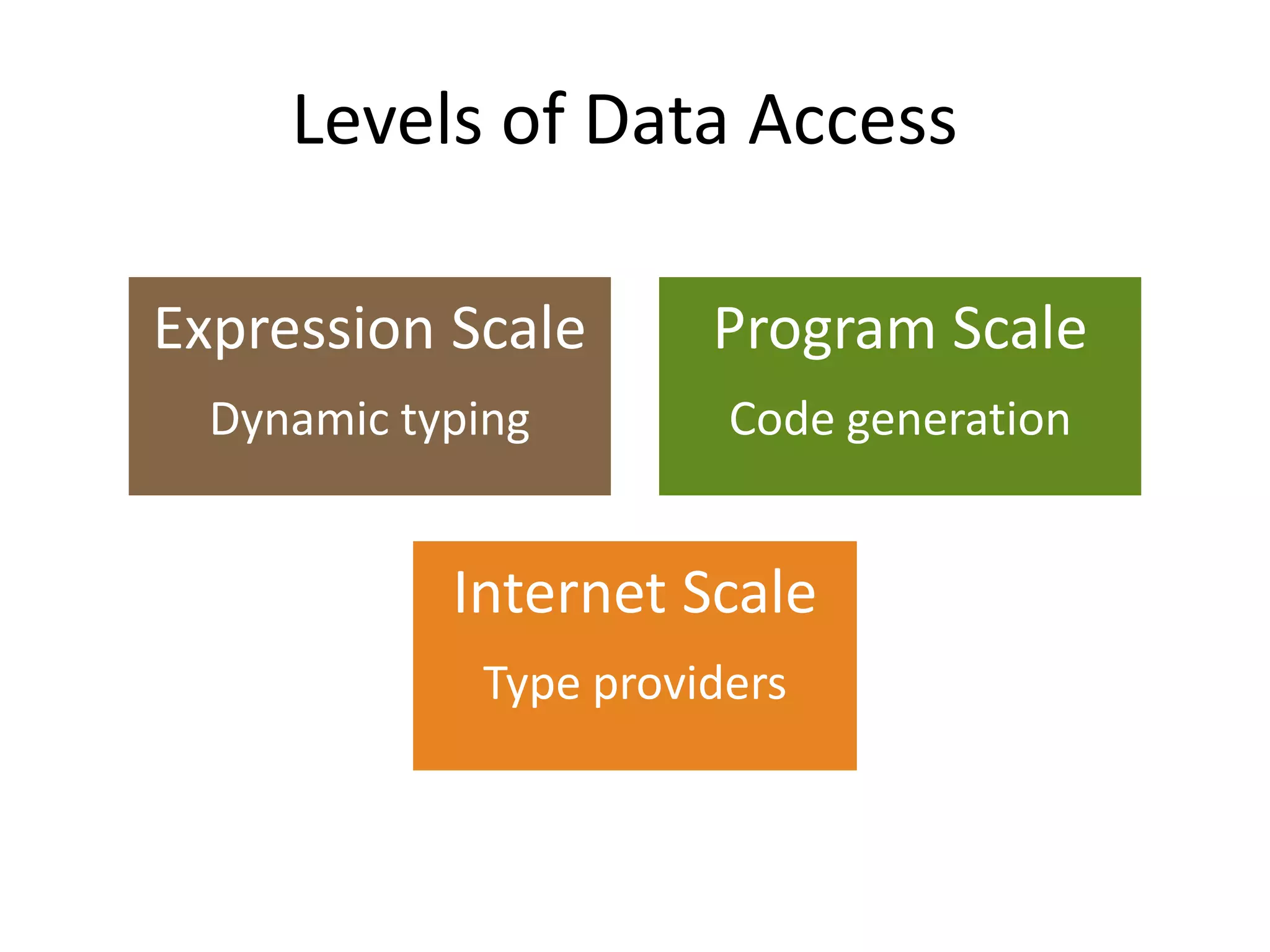
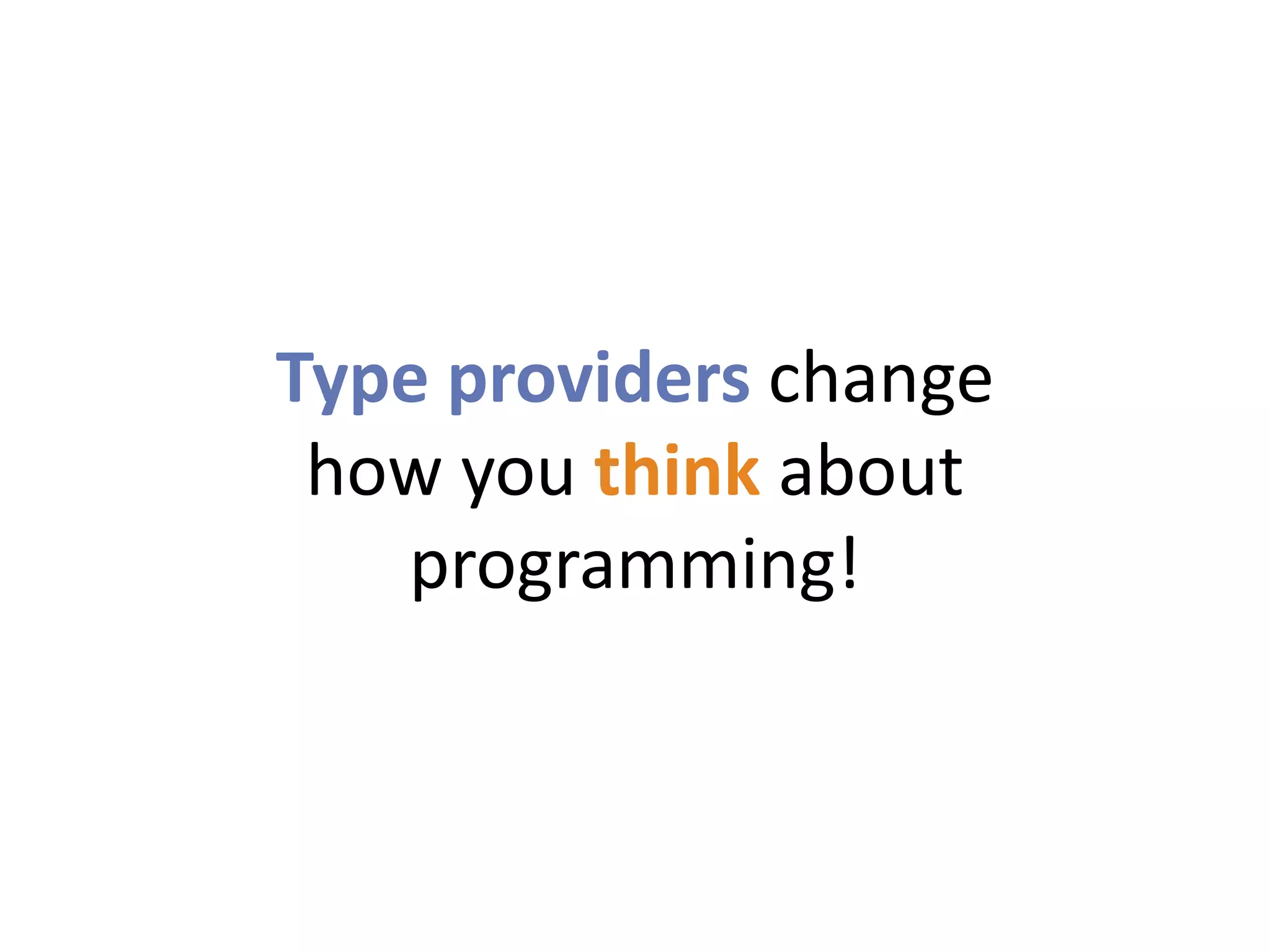



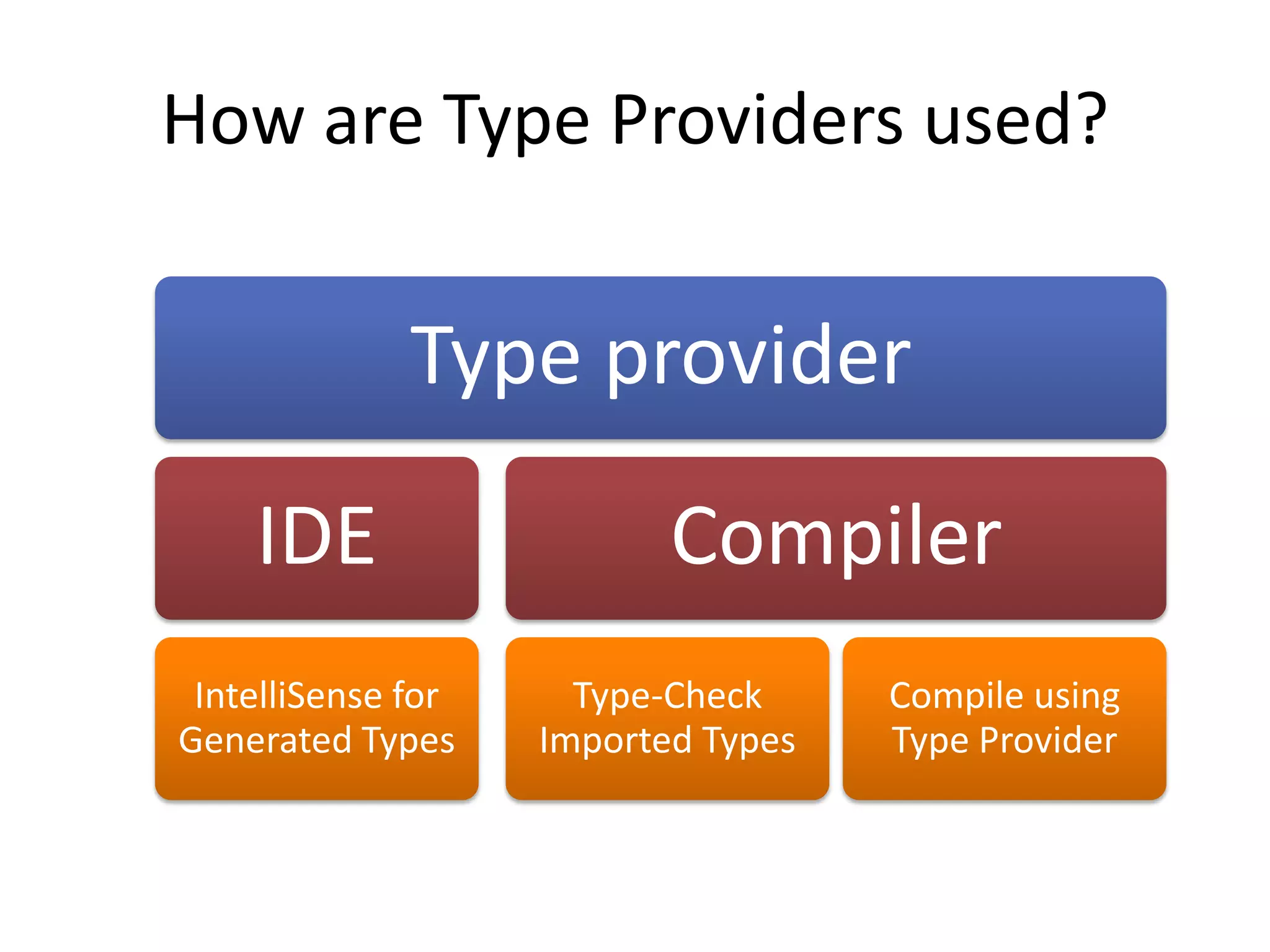
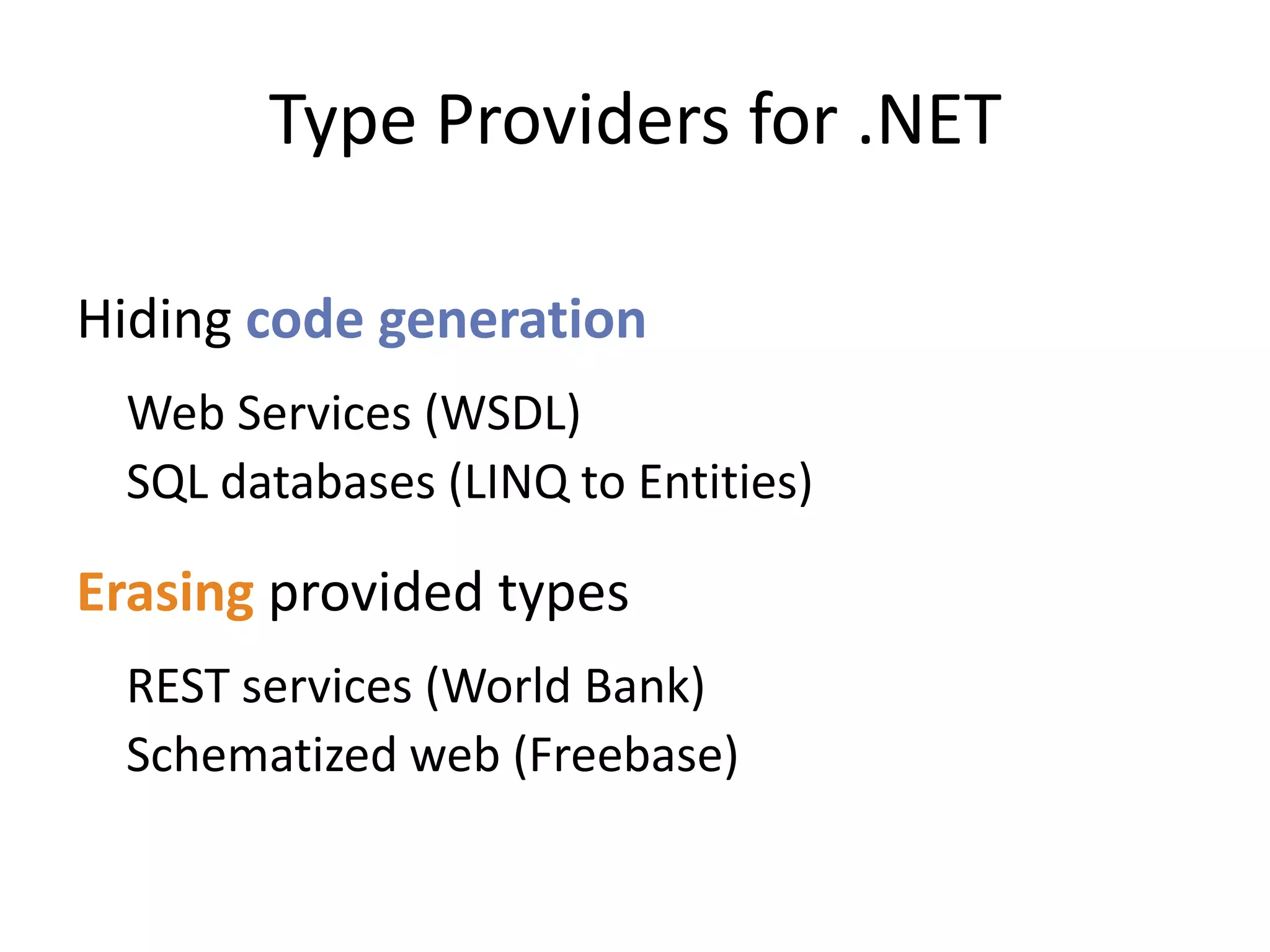

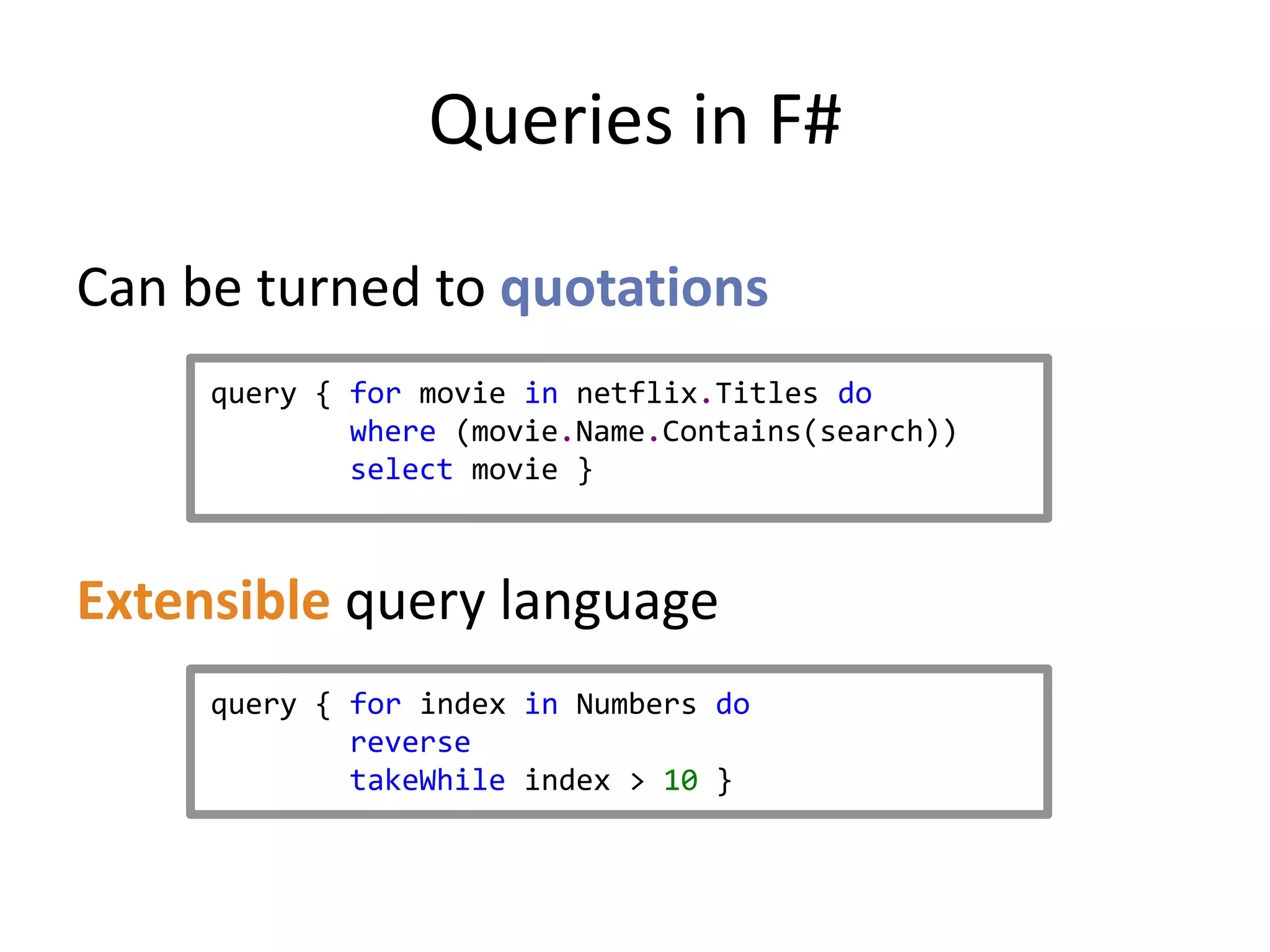
![Implementing Type Providers
public interface ITypeProvider
{
Type[] GetTypes();
Expression GetInvokerExpression
( MethodBase method,
ParameterExpression[] params );
event EventHandler Invalidate;
}](https://image.slidesharecdn.com/providers-120316121054-phpapp01/75/F-Type-Providers-in-Depth-15-2048.jpg)
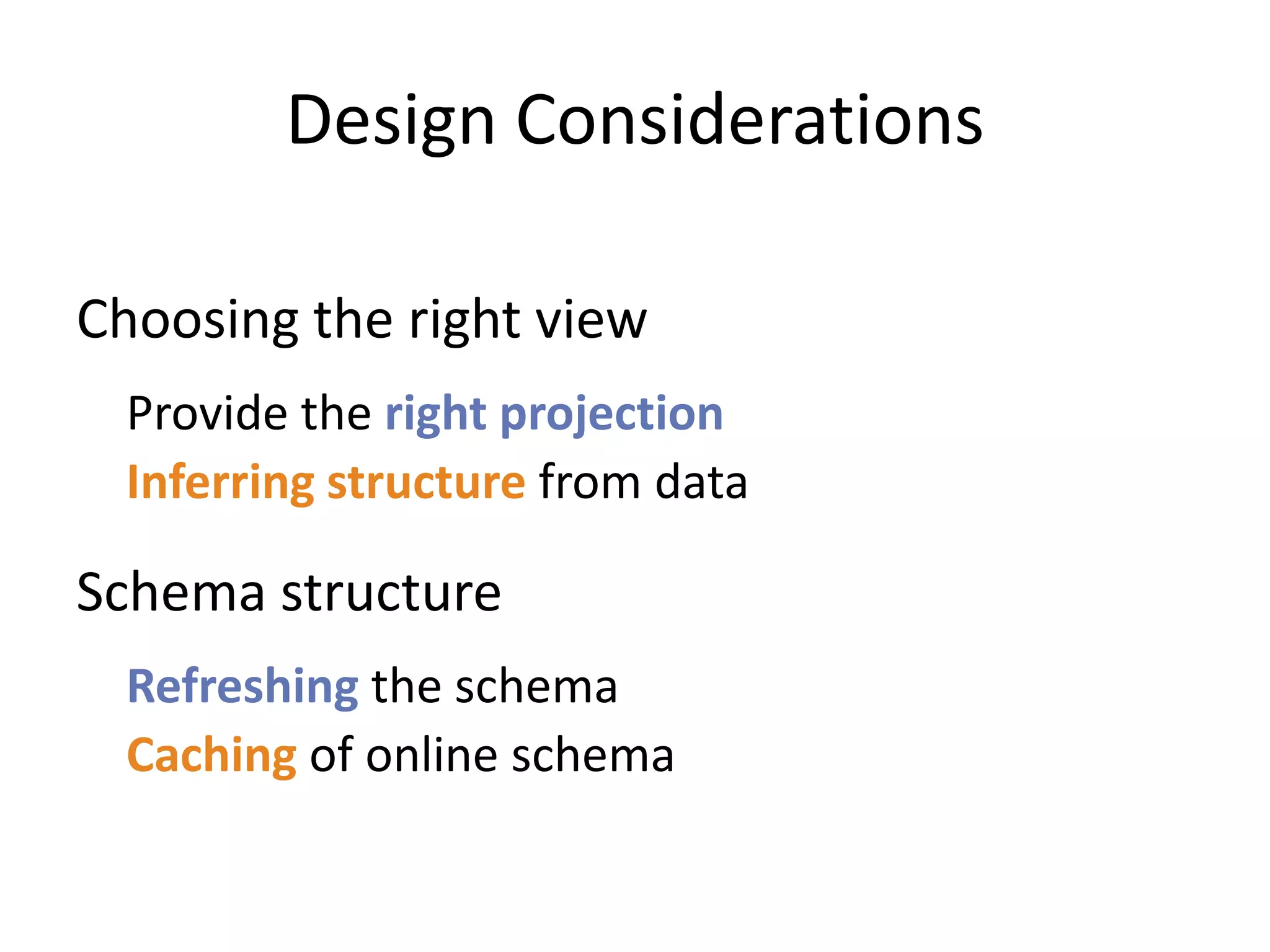
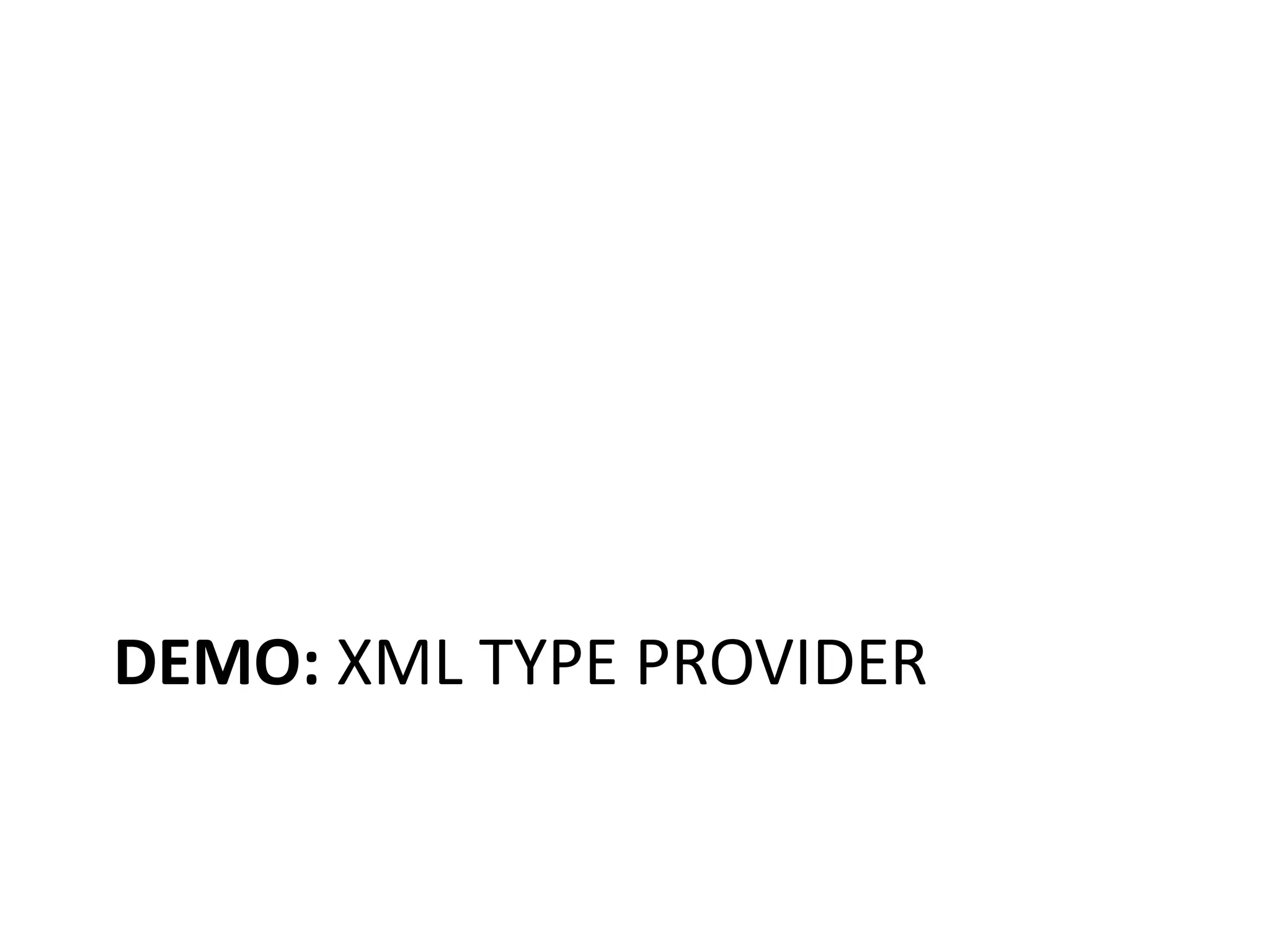
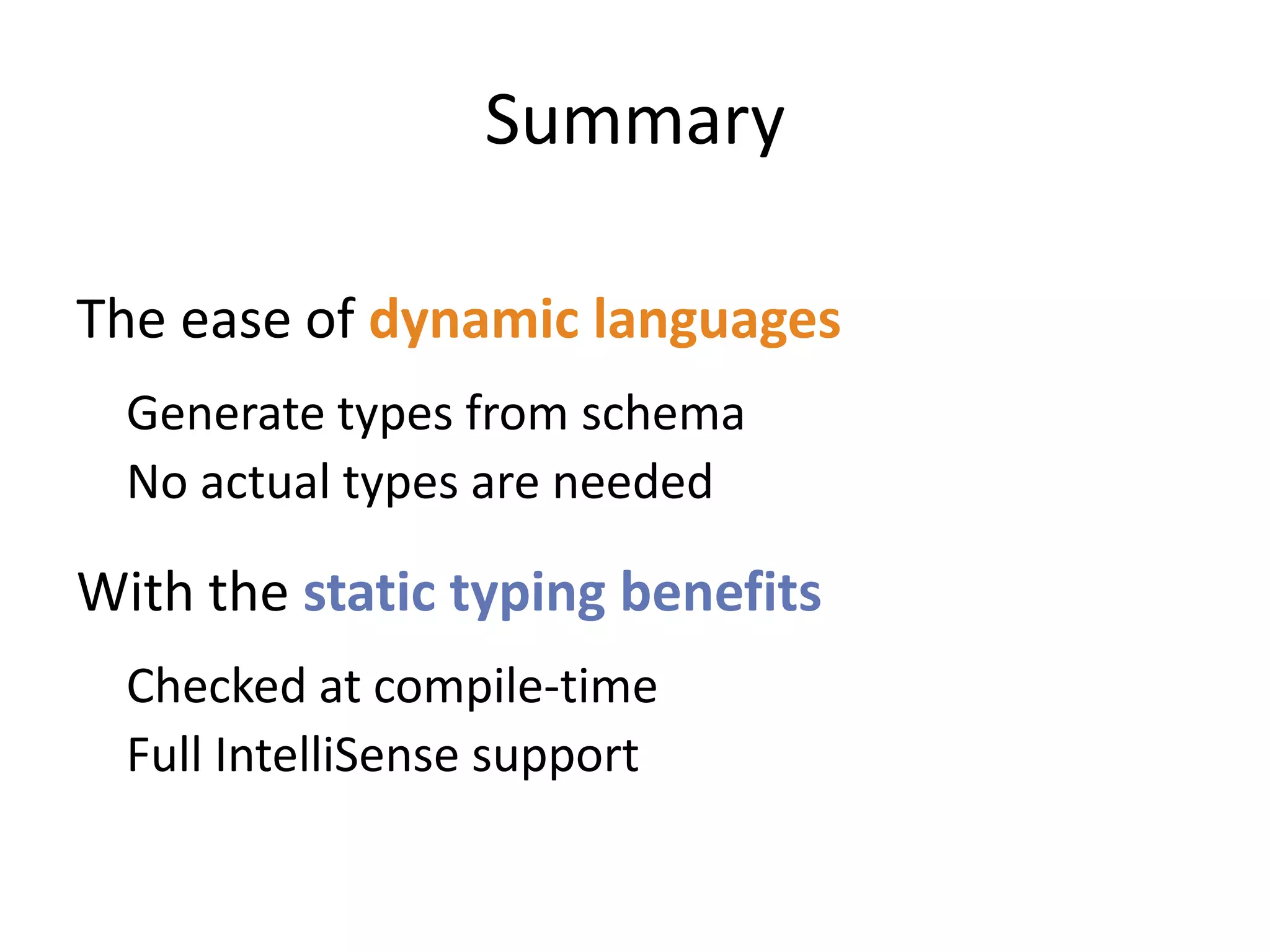
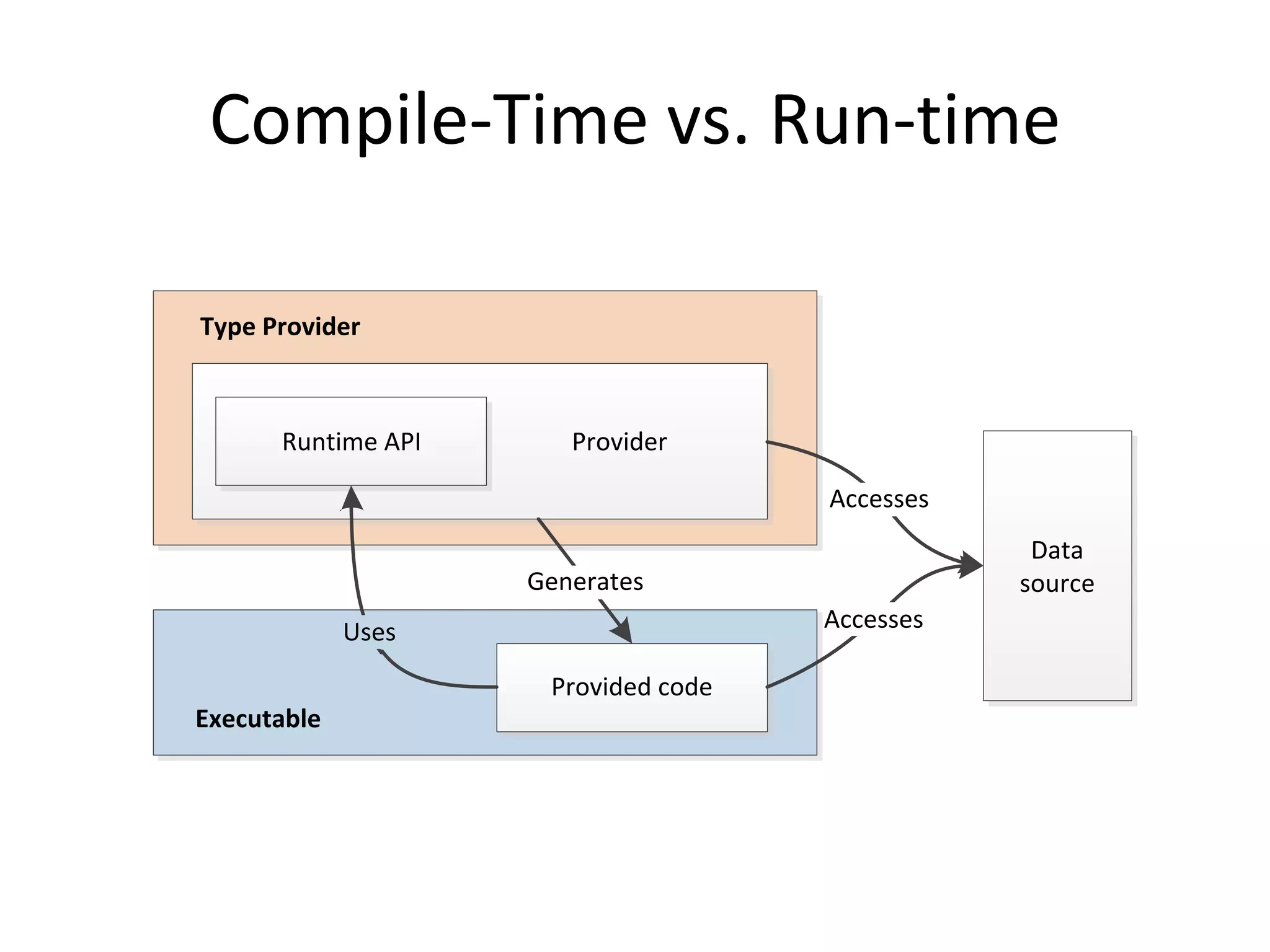
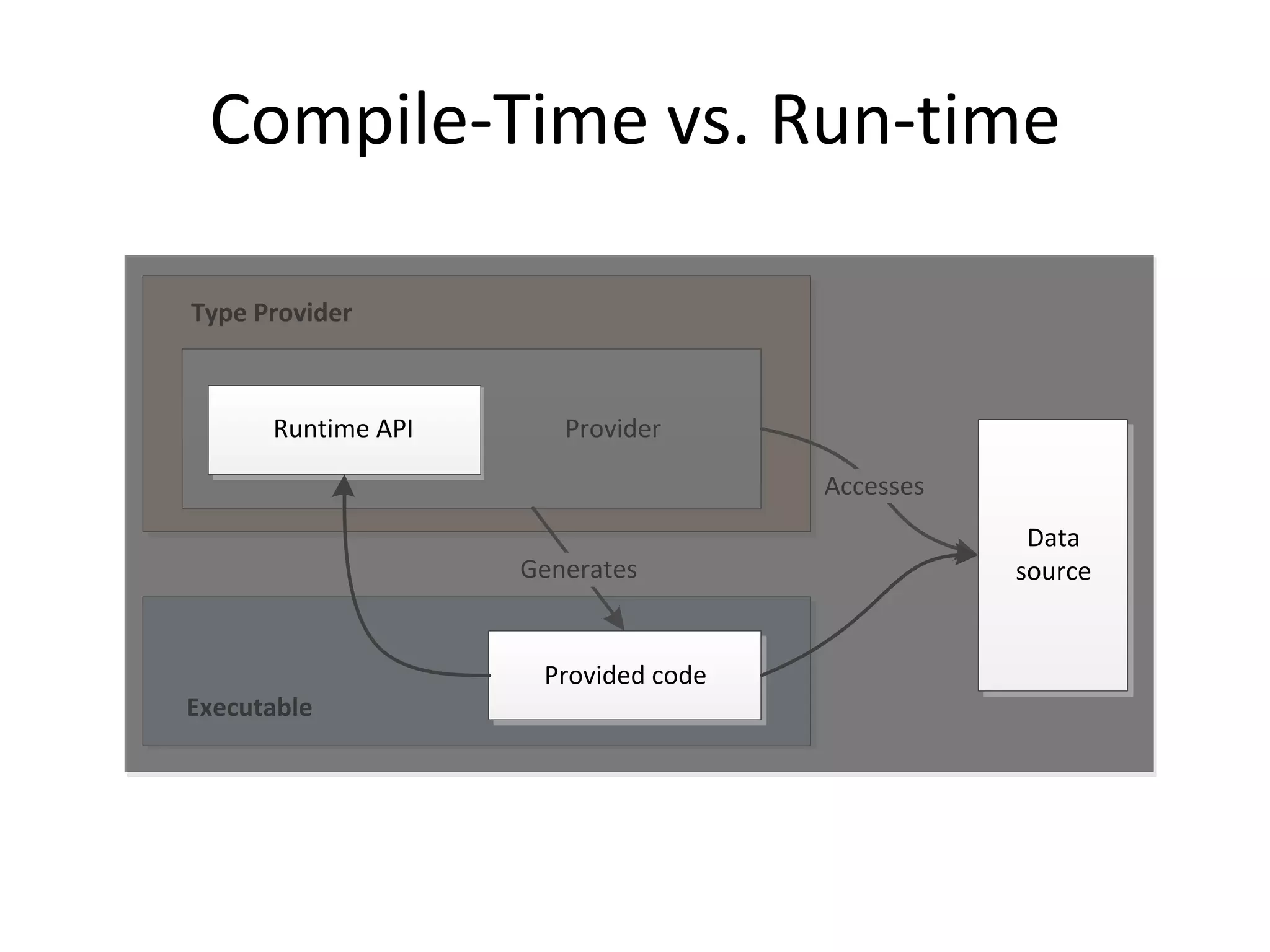
![Structure of a Simple Provider
[<TypeProvider>]
type SampleTypeProvider(config: TypeProviderConfig) =
inherit TypeProviderForNamespaces()
// Define new type Samples.GeneratedType
let thisAssembly = Assembly.GetExecutingAssembly()
let providedType = ProvidedTypeDefinition( ... )
do
// Add property 'Hello' that just returns a string
ProvidedProperty
( "Hello", typeof<string>, IsStatic = true,
GetterCode = fun args -> <@@ Runtime.lookup "Hello" @@>)
|> providedType.AddMember
// Register the type with the compiler
this.AddNamespace(namespaceName, [ providedType ])](https://image.slidesharecdn.com/providers-120316121054-phpapp01/75/F-Type-Providers-in-Depth-21-2048.jpg)